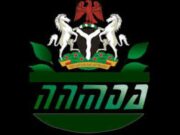The Senate on Wednesday passed for second reading a bill to regulate and formalise employment in the informal sector through private agency involvement.
The Bill sponsored by Senator Mohammed Sani Musa seeks to regulate and formalise the employment of domestic workers, apprentices, interns and other informal sector employees in Nigeria.
It also seeks to empower the National Directorate of Employment to issue license and monitor privately owned Employment Agencies whose responsibility will be to enroll employees in their data bank, safeguard and enhance their social security and oversee their recruitment by employers who engage in legitimate occupation on such terms and conditions as may be agreed by the parties.
Musa in his lead debate noted that the informal sector is usually regarded as the residual labour market where labour is highly heterogeneous and sources of income are not largely wage dependent, working time is discretionary and some jobs are not paid for at all.
He said: “Operations in the sector are usually in small scale; production technique is labour intensive and ownership is usually private. In most cases, the workers in this sector are family members, apprentices and few paid employees.
“The informal sector of Nigerian economy show evidence of violation of employees’ right and non-implementation of labour regulations, although the informal sector provides a safety net for skilled, semi-skilled or unskilled labour who could not find job in the formal sector of the labour market.
“However, informal sector in Nigeria has practices that are not in conformity with the International Labour Organisation (ILO) best practices as ratified in its conventions” which Nigeria is a signatory to.
“One of such areas of concern relates to decent work deficit. Decent work is work with fair and equal treatment, decent remuneration, and fair conditions of employment, safety and social protection, opportunities for training and development, and collective bargaining.
“The primary goal of this bill is to regulate this sector to promote strategic objectives: the promotion of rights at work, employment, social protection, and social dialogue,” he said.
Musa lamented that employees in the informal sector are often seen as having no right and are not treated fairly by their employers, which is another thing the bill seeks to correct.
He said: “This bill empower the National Directorate of Employment to issue license and monitor the activities of Employment Agencies throughout the country.”
However, Adams Oshiomhole, while contributing to the debate, noted that public and private sector agencies use third parties to recruit their low level staff.
“We cannot create multiple centres of fraud under the guise of private sector participation. It’s already happening—security staff earn as little as N40,000 while appearing to work for the government. This bill could make that kind of abuse even worse,” Oshiomhole said.
In his remarks, chairman of the Committee on Labour and Productivity, Diket Plang, reminded the Senate that a similar bill had previously been introduced to regulate domestic help employment.
He informed his colleagues that the bill has undergone public hearing and awaiting third reading.
“This job is already the statutory responsibility of the Federal Ministry of Labour,” Plang, who chairs the Senate Committee on Labour, said. “We can consolidate the two bills.”
The Senate subsequently passed the Bill for second reading and referred it to the Senate Committee on Employment, Labour, and Productivity for further consideration.
Credit: thenationonlineng.net









































































